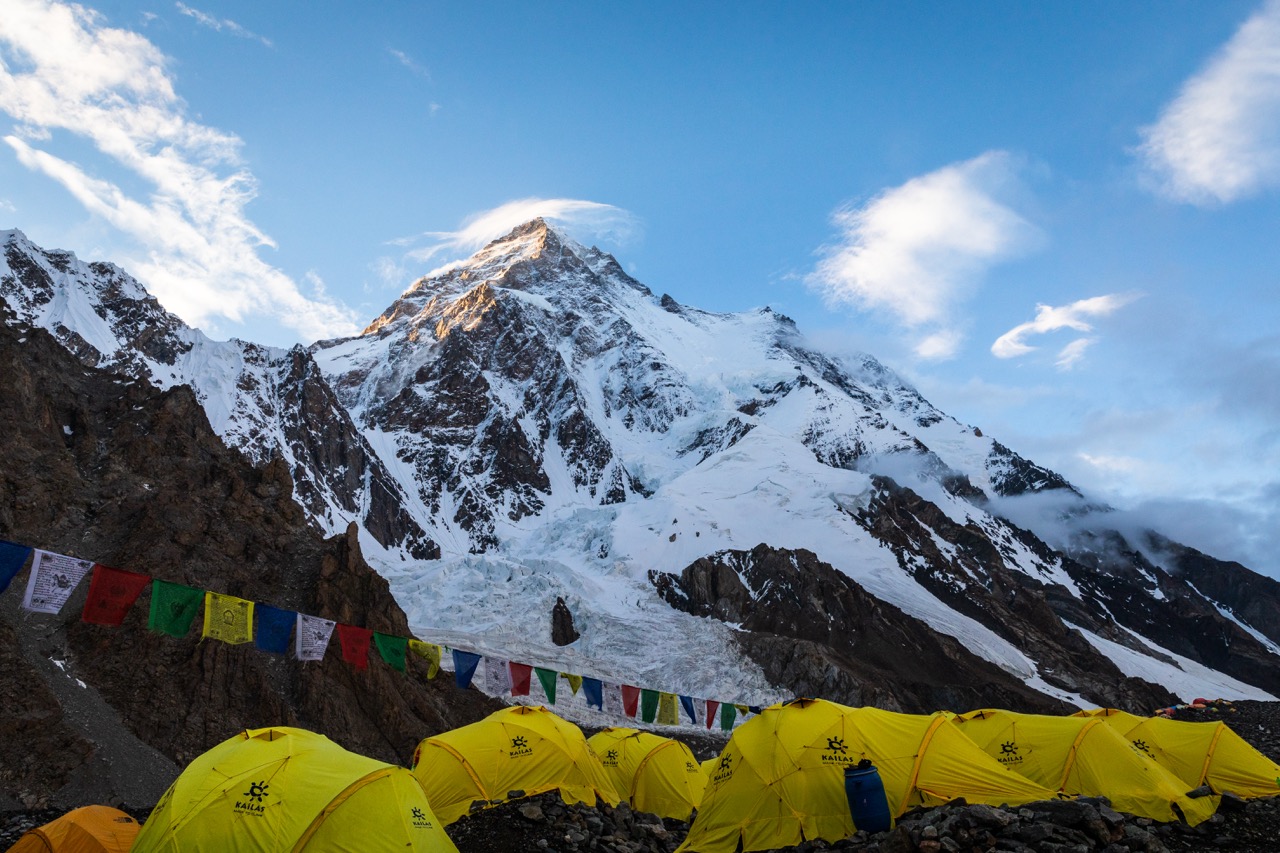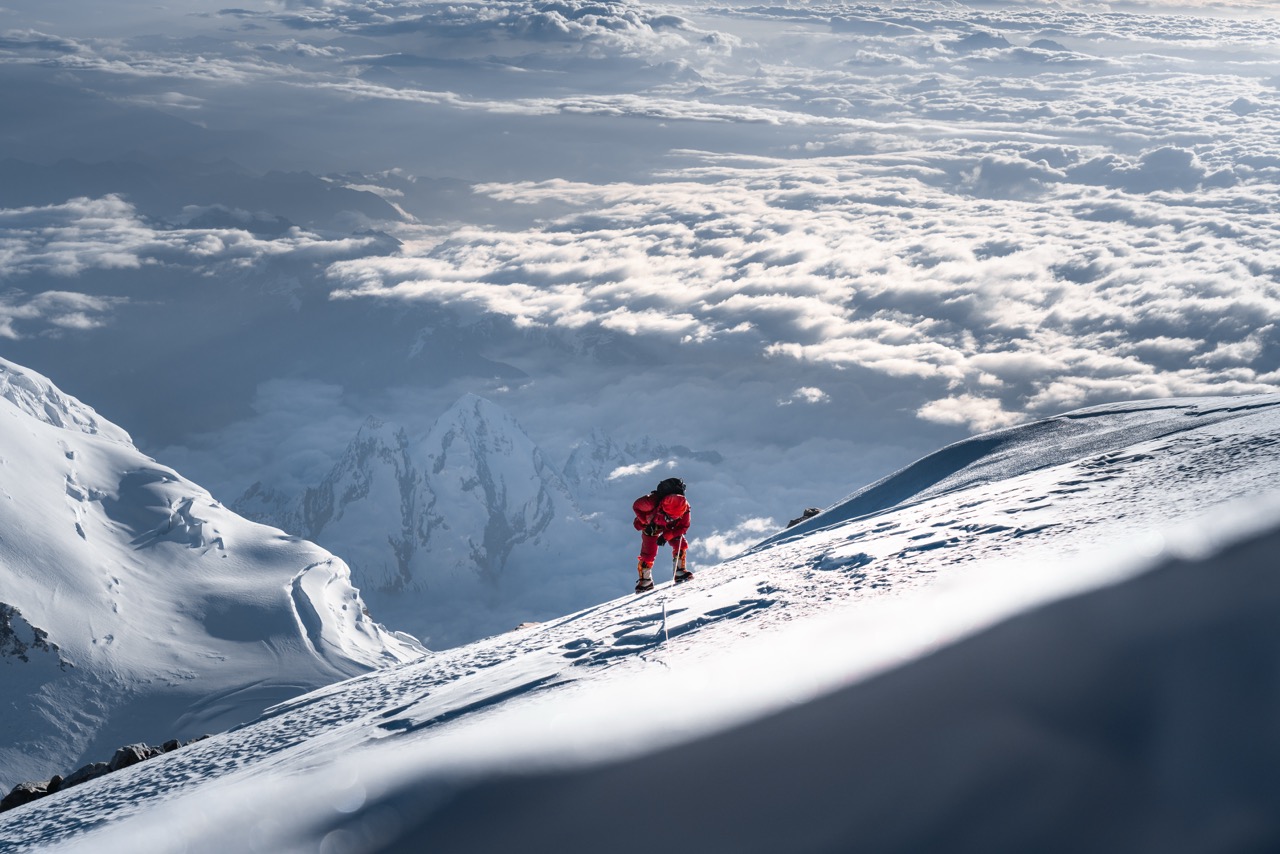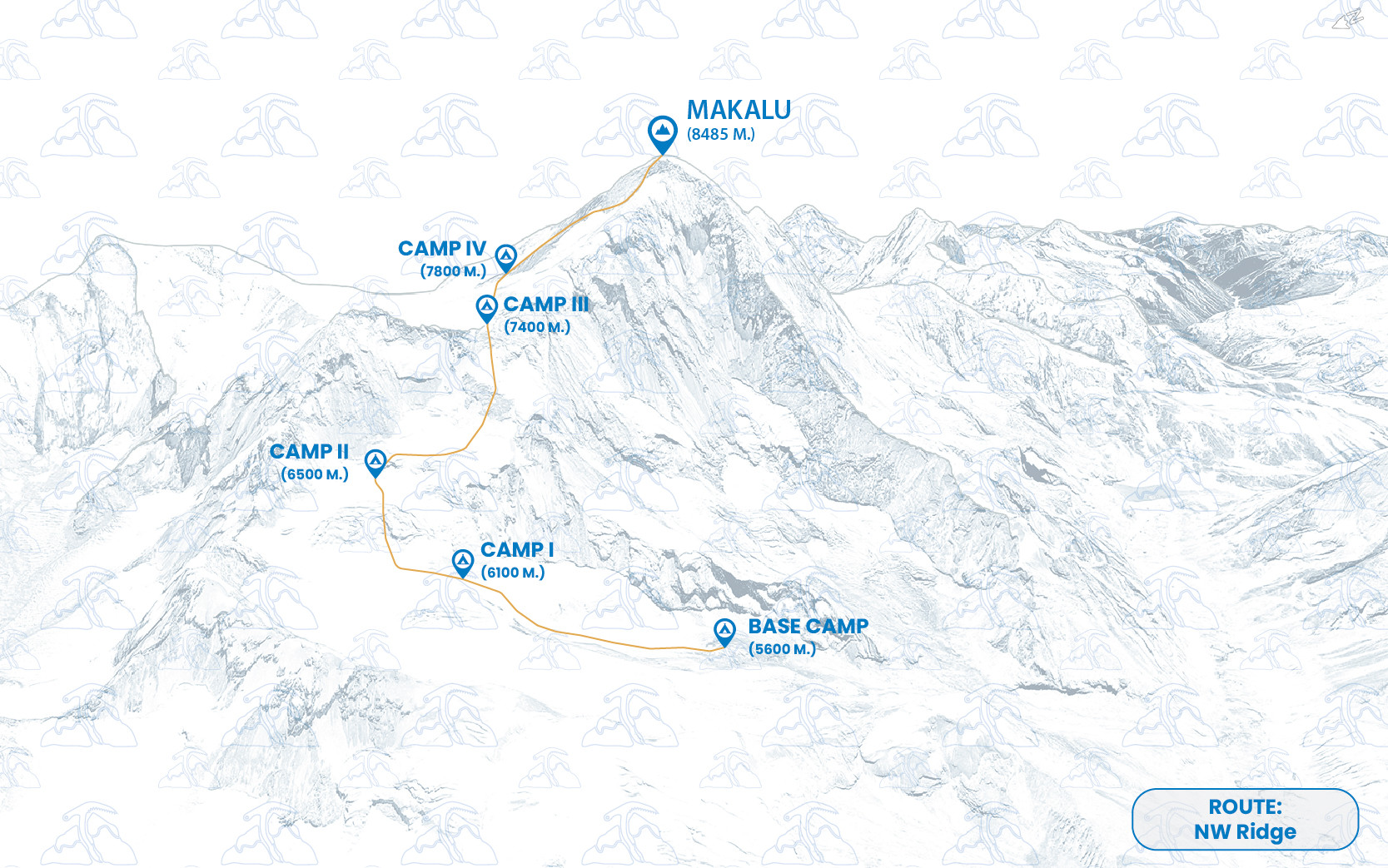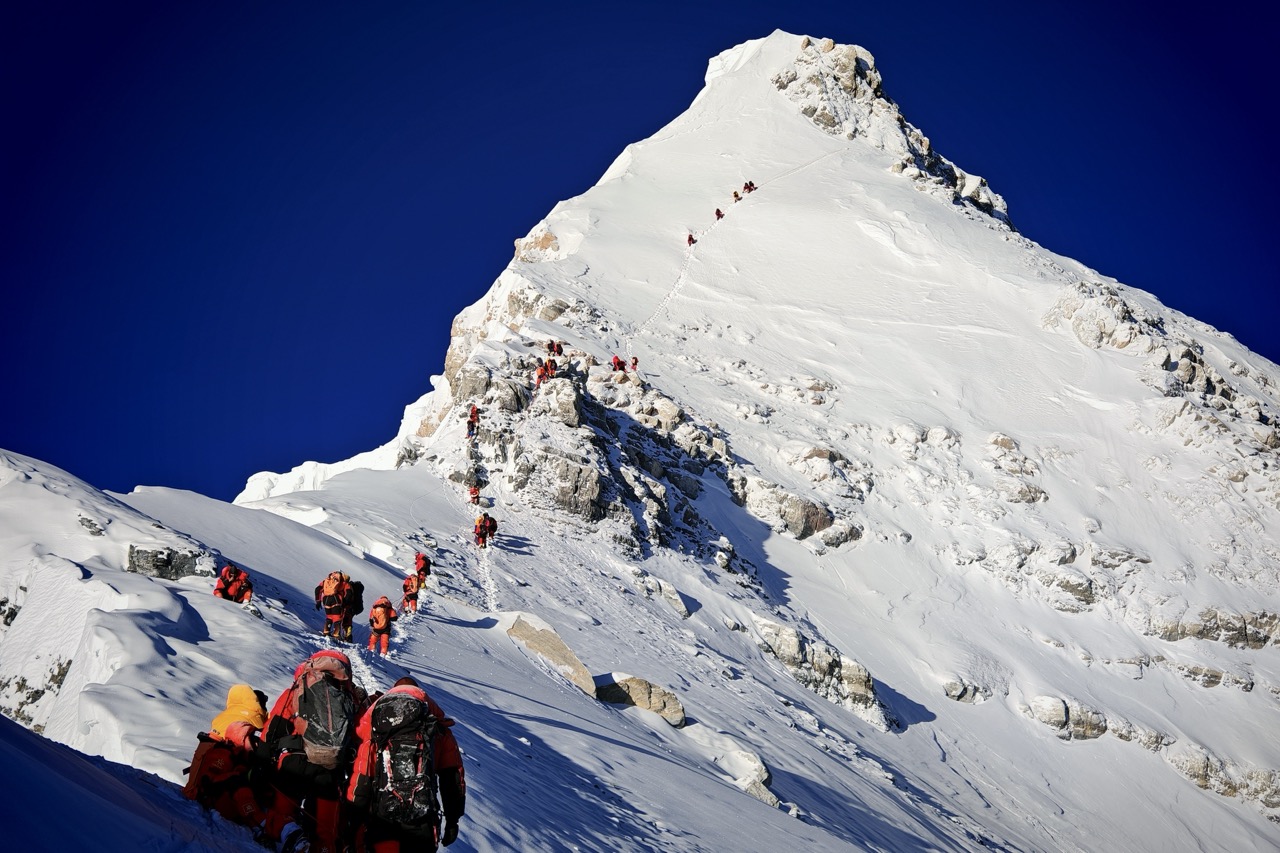
MAKALU EXPEDITION SPRING 2026


Mt. Makalu, rising to an impressive 8,463 meters, is the 4th highest peak in Nepal and the 5th highest peak in the world. Located in the eastern Himalayas, this iconic giant sits just 19 km southeast of Mt. Everest, straddling the border between Nepal and China. Its striking pyramid shape and steep, knife-edged ridges make Makalu one of the most visually stunning yet technically demanding peaks on the planet.
Most climbers follow the North-West Ridge route, a bold and highly challenging line that requires exceptional technical skills, strength, and mental resilience. Makalu is well-known for its unforgiving terrain, unpredictable weather, and complex high-altitude sections—making it a true test of a climber’s endurance and commitment.
For a standard ascent, the expedition structure typically includes base camp at 5,600m, followed by four progressively challenging high camps:
Camp I – 6,100m
Camp II – 6,500m
Camp III – 7,400m
Camp IV – 7,800m
Each camp pushes climbers closer to the razor-sharp summit ridge and the coveted top.
Mt. Makalu Expedition – Spring 2026
14 Peaks Expedition is now welcoming climbers to join our Spring 2026 Makalu Expedition, with arrival in Kathmandu scheduled for April 14, 2026. Guided by elite Sherpa mountaineers and supported by our leading safety-first logistics, this expedition provides a powerful opportunity to strive for one of the most challenging 8000m summits in the Himalayas.
What Sets Our Makalu Expedition Apart?
Expert Sherpa leadership with world-class technical experience
Strong acclimatization plan for climber safety and success
Cutting-edge logistics and high-end expedition support
Exclusive opportunity to challenge a rarely climbed 8000m peak
Dare to rise above limits.
Join the Makalu Spring 2026 Expedition with 14 Peaks Expedition — and conquer one of the hardest mountains on Earth.

Airport Transfers – Private vehicle transfers for airport pick-up and drop-off.
Hotel Accommodation in Kathmandu – 4-5 nights in a star-category hotel (single room, bed & breakfast). Welcome Dinner – Dinner at a tourist-standard restaurant in Kathmandu with office staff and guides. Food & Lodging During Expedition – Three meals daily (breakfast, lunch, and dinner) with tea/coffee, fresh vegetables, meat, fruits, snacks, and soft drinks, using helicopter supplies. Base Camp Accommodation – Each member will have an individual box tent with a proper bed at Base Camp.
Expedition Permits – Government royalty and permits for Mt. Makalu, conservation area entry permits, and fees. Liaison Officer – Government liaison officer with full equipment, salary, and accommodation. Garbage Management – Stool shipment transfer & garbage deposit fees.
Member Transportation – Helicopter flights: Kathmandu → Lukla Dingboche → Makalu High Camp Makalu Base Camp → Kathmandu Expedition Transportation – Equipment transport via truck (Kathmandu → Dana), then by helicopter/mules/porters to Base Camp and back. Member Luggage Allowance – 15 kg during the trek and 60 kg for the expedition, carried by porters, yaks, or helicopters.
Porters – 1 porter per 2 members up to Base Camp and back. Base Camp Staff – Experienced cook & kitchen helpers. Staff Salary & Allowance – Wages, salary, food, clothing, and equipment for all Nepalese staff, climbing Sherpas, and porters. High-Altitude Climbing Sherpa – 1 multiple-8000m summited Sherpa guide and 1 assistant Sherpa per member from Base Camp to the summit and back.
Duffle Bags & Gear – Two 14 Peaks duffle bags (120L for trekking, 150L for expedition). Cap, buff, and jacket. Base Camp Equipment – Single box tent, foam mattress, pillow. Dining tent, kitchen tent, communication tent, toilet & shower tent, Nepalese staff tents, store tent. Tables, chairs, cooking gear. High Camp Infrastructure – High-altitude tents, cooking gas, pots, and food at Camps I-IV. High-Altitude Tents – Shared tents at high camps (2 members per tent). Heater at Base Camp – Heater available in dining tents. Solar & Generator Power – Solar panel and generator for lighting, battery charging, and electronics. Rope Fixing Team – Sherpa team from the Expedition Operators Association (EOA) will fix summit routes (no extra charge).
Training – Oxygen mask, regulator, ice wall, and ladder training at Base Camp by Climbing Sherpa Guide. Oxygen Supply – 4 oxygen bottles (4L) per member. 1 oxygen bottle per high-altitude Sherpa. Summit Oxygen mask and regulator per member & Sherpa (to be returned post-expedition; charges apply if lost/damaged). Extra masks and regulators available for emergencies. Satellite Phone – Available for emergency communication (member use with additional charge). Walkie-Talkie – Communication between Base Camp and mountain teams.
Insurance – Medical & emergency rescue insurance for all Nepalese staff. Medical Kit – Comprehensive medical kit for members and staff. Weather Forecasting – Regular weather reports from Meteotest, Bern (Switzerland).
Climbing Certificate – Official Makalu climbing certificate issued by the Department of Tourism upon successful summit.
All expedition gear must be returned post-expedition; charges apply for lost or damaged items.
International flight tickets to and from Kathmandu.
USD 125 for a 90-day Nepalese visa.
Lunch and dinner during the stay in Kathmandu.
Additional accommodation in case of early arrival, late departure, early return from the expedition, or domestic flight cancellations.
Travel insurance covering medical treatment, high-altitude evacuation, trip cancellation, interruption, repatriation, and other unforeseen incidents.
Costs for telephone calls, internet, toiletries, battery charging, hot showers, laundry, soft drinks, alcoholic beverages (except soft drinks provided at Base Camp).
Personal clothing, trekking and climbing gear, packing items, personal medical kit.
Fees for special filming, camera, and drone permits.
Minimum USD 2,000 for climbing Sherpa.
Minimum USD 400 for Base Camp and High Camp staff.
Any services or activities not mentioned in the itinerary or the "Cost Includes" section.
For safety reasons, our Heli Rescue team and medical doctor are always on standby during any expedition in Nepal. If a medical rescue evacuation is necessary, the costs must be covered by the climber's insurance company.








